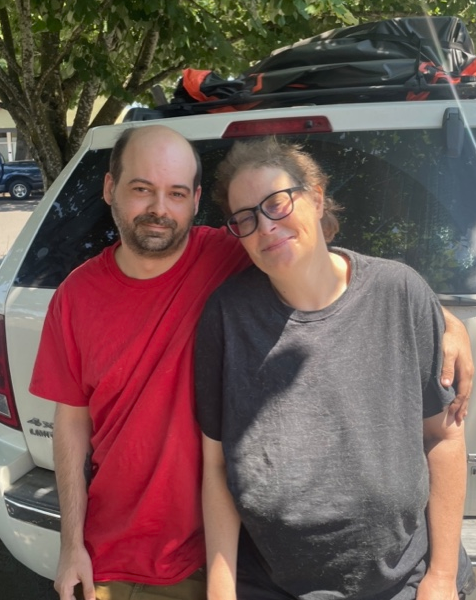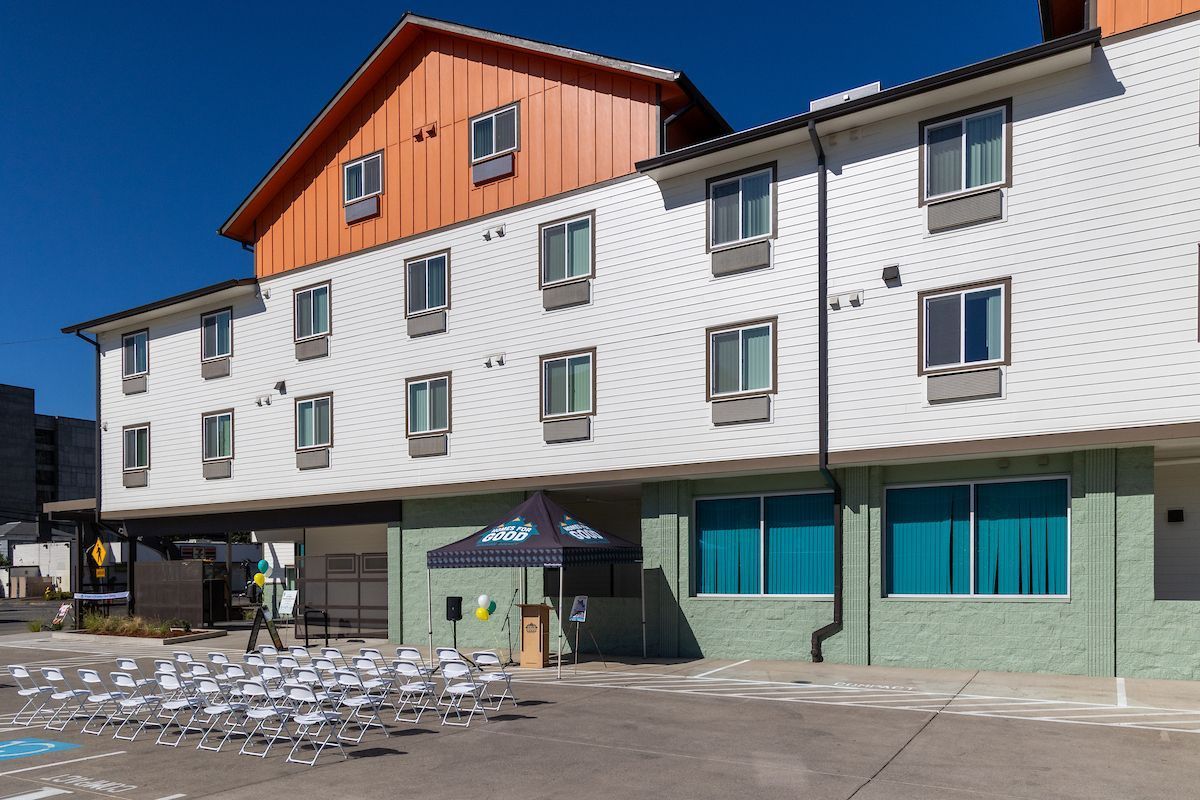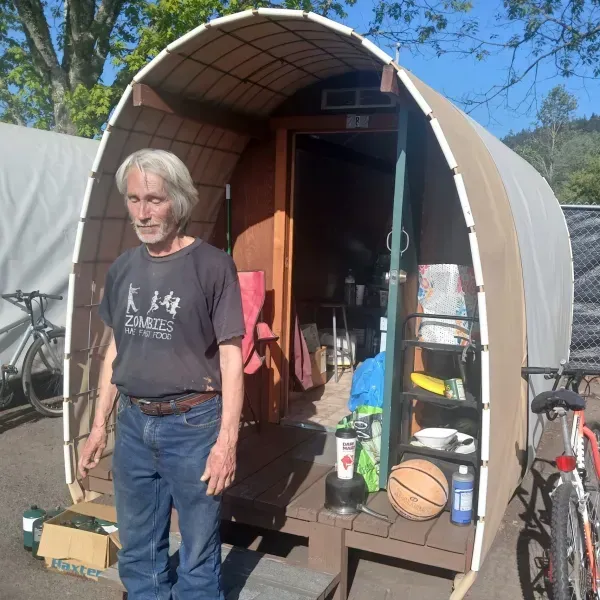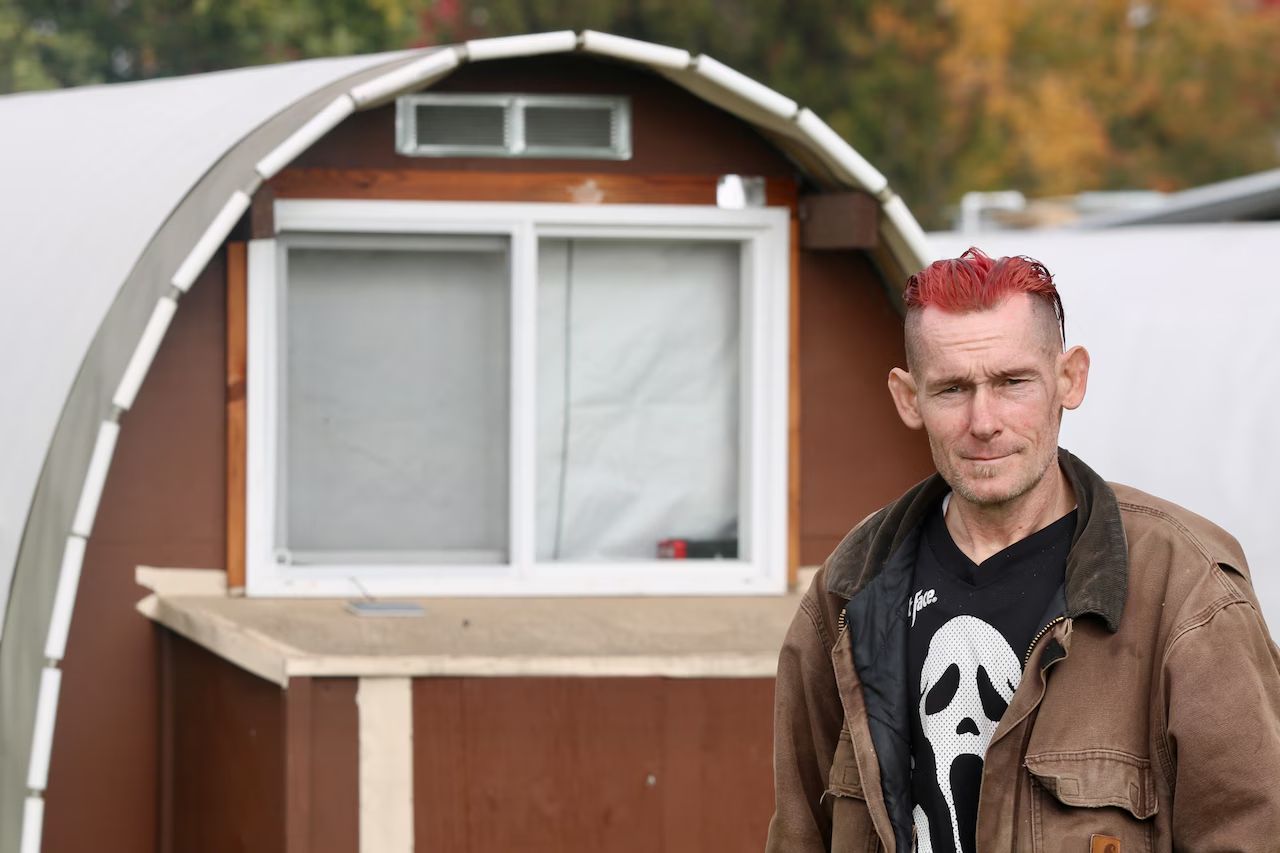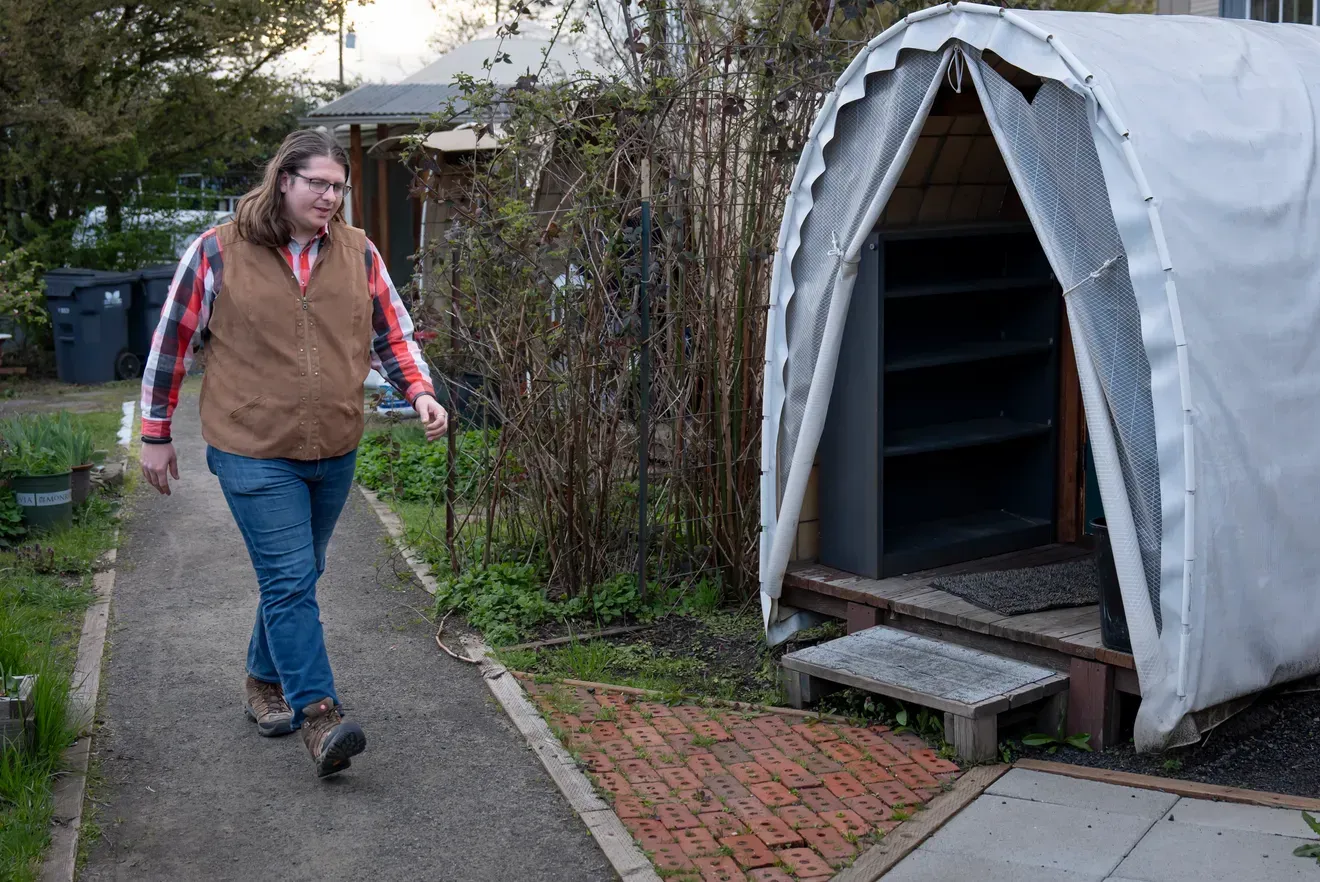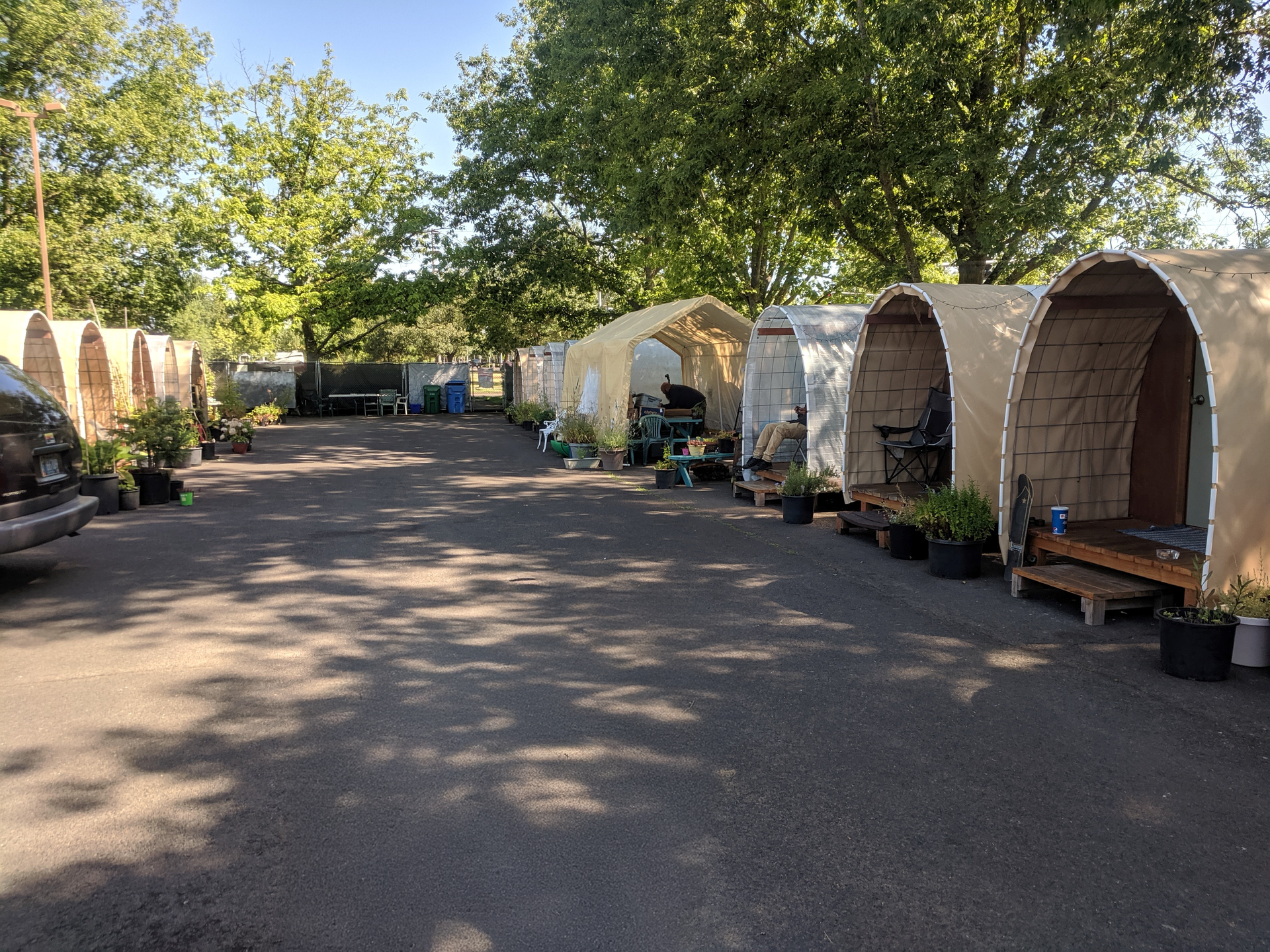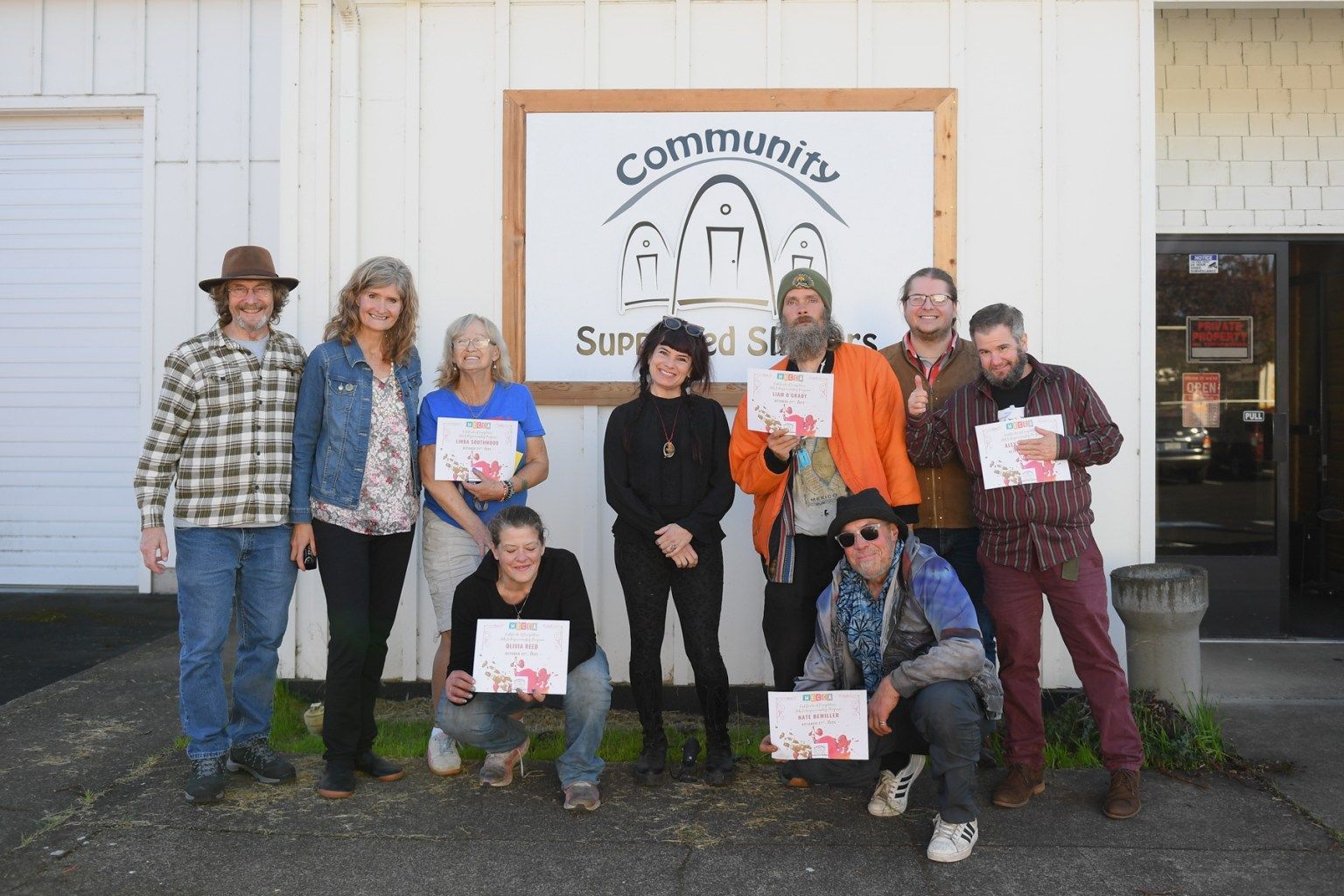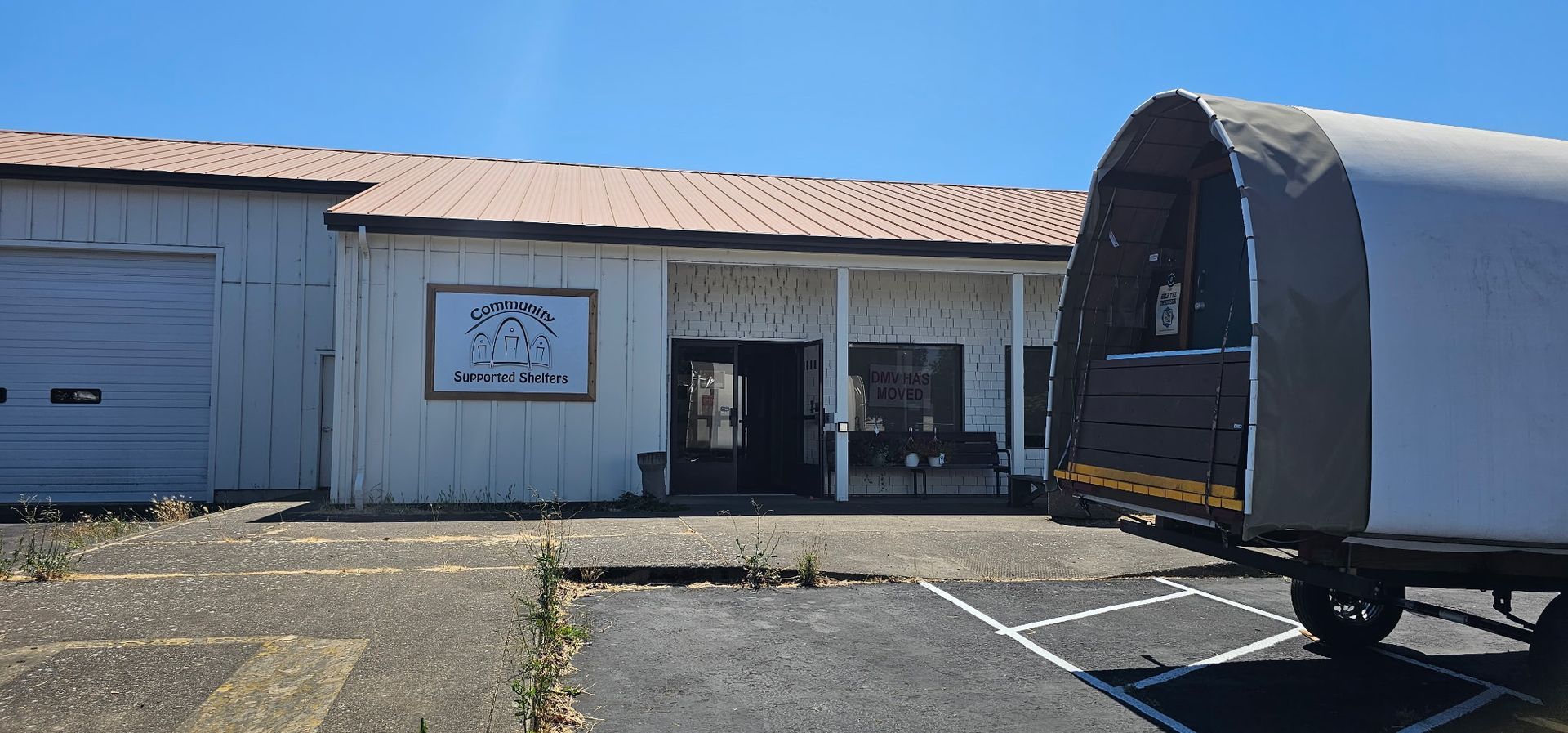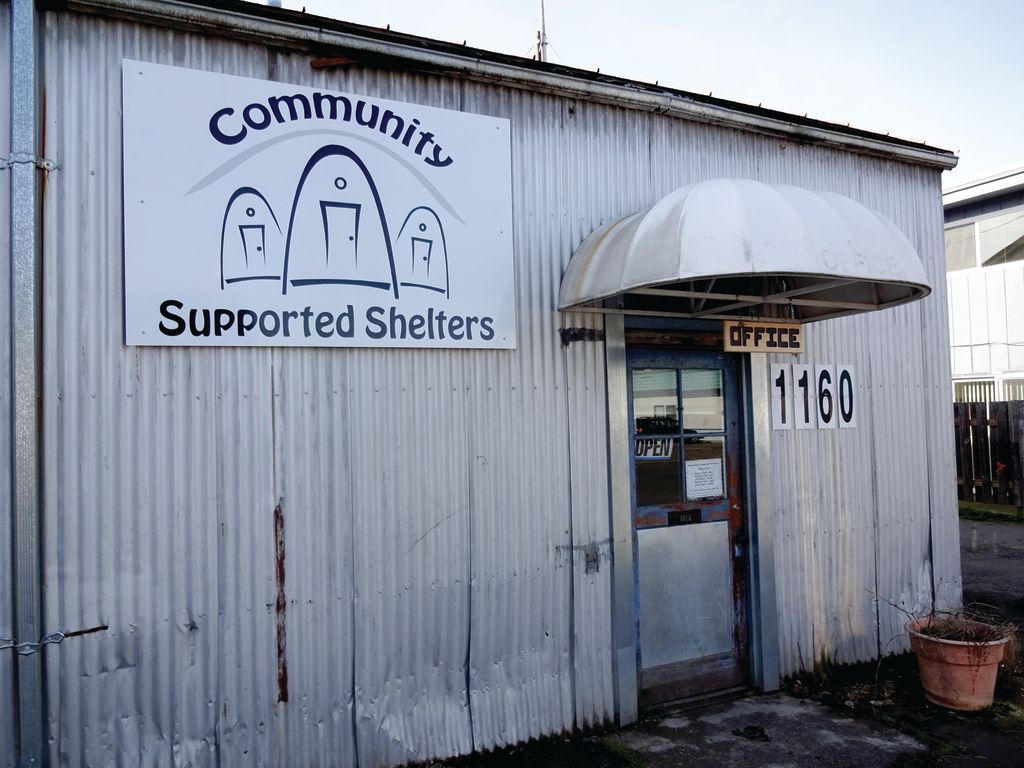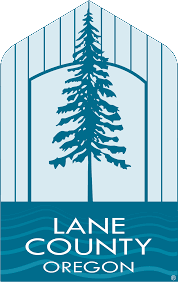Eugene’s Revised Camping Ordinance Raises Concerns
July 2023 - By Guy Maynard
At the public hearing about the revised ordinance CSS Director of Philanthropy Heather Quaas-Annsa raised concerns about the lack of guidance to unhoused people as to “exactly where they can camp” and the increase in fines for “willful violations,” which is defined as two citations within 30 days.
“I would like to urge you all to provide clarity to our unhoused community members so they know exactly where they can camp. . . There are simply not enough legal shelter beds to accommodate our current unhoused population. If a designated camping space is not provided, unhoused individuals will be forced into more dangerous and isolated situations.”
Similarly, Heather said, raising fines further exacerbates the challenges the unhoused face. “Fining someone without an income makes zero sense,” she says. Fines that can’t be paid can lead to damaged credit and a criminal record, which “only makes it harder for [unhoused people] to access housing and employment.”
At the City Council meeting when this revised ordinance was passed, there was discussion of creating a map to show unhoused people where it was legal to camp but not enough support to move forward on it. Eugene Mayor Lucy Vinis said the increased fines were primarily intended to force people to community court where they could be directed to “alternative solutions.” Supporters of the ordinance stressed that it was intended to further community “safety, accessibility, and public health.”
Councilor Lyndsie Leech, who voted in opposition, said, “This ordinance feels like we are supporting folks who are housed and not so much about the other side of this.” The ordinance will “continue the cycle of criminalizing being unhoused without the second piece of where they are allowed to be . . . People are going to continue to fail for the simple act of being unhoused.”
Dace Whitely, a CSS Service Team member, says the buzz among the unhoused about the new regulations is affecting CSS Safe Spots Communities. One of the sites she works with is very close to two of the largest unhoused encampments in Eugene. She says the talk among those community members is that the uncertainty about the new rules will bring more unhoused visitors to the CSS Safe Spots. “That creates a lot of complexity because, according to our rules and our capacity, we can’t allow people who are not in the CSS program to be using the resources of CSS because that will deplete the resources. And the flip side of that is this really emotionally complex, tragic, traumatizing thing for so many people that we’re essentially putting people in the positions of having to turn their friends away.”
What can housed people do to support the unhoused in the face of the revised camping ordinance?
Although intended to establish “objectively reasonable” regulations for how the unhoused can access public property, it does not change the underlying realities that there are not enough legal camping spaces or shelter beds to accommodate all the unhoused people in Eugene and that criminal penalties can be imposed on unhoused people for camping in the wrong place.
Karen and Daniel say supporters of the unhoused need to raise their voices. “This law is very discriminatory, incredibly harmful,” Karen says. “It is not a civil law and we should not be speaking civilly about uncivil things.”
Dace suggests “a way that people can respond to this constructively is by engaging in direct action around writing letters to the editor, having conversations with people around us, and interacting with unhoused people and being curious about them.” Heather also suggests community members contact their local city councilors and attend City Council meetings to encourage, at the very least, the creation of a map that clearly shows where unhoused people can camp.
Current enforcement is “complaint-based,” according to McIver, the city’s Unhoused Response Communications Director. “There are situations that I know of and that I’ve observed where people are engaged in what is technically public space camping that is in violation of city code,” he says. “And because of the acceptance of the people around that spot and because of how the person in that spot is carrying it out, it’s not generating a complaint. Therefore, it’s not something that we’re responding to because the fact of the matter is that we’re over-taxed in responding to the reports that do come in.”
Put another way, the housed can treat unhoused people like neighbors rather than criminals.
For example, Karen says, people who have “a corner of your land where you don’t mind people sleeping, invite them.” The camping ordinance does not apply to private property.
She also suggests the housed could mark up maps of their neighborhoods showing where it is unsafe for the unhoused to camp, where they might be harassed or arrested. “Take a family stroll with a tape measure and mark areas as unsafe or illegal,” she says. That would serve both to warn the unhoused and to illustrate just how limited the legal spaces are.
Dace says supporting and donating to organizations such as CSS and others serving the unhoused “is really important, and simultaneously we need to put pressure on the broader structure to take care of all people. As long as the broader culture is paying people insufficient wages, not providing universal health care, not providing universal education, not offering free mental health services and addiction services, the problem will continue to deepen.”
What makes it difficult for unhoused people like Karen and her partner Daniel Denton is that there are no resources to direct them to where it is legal to camp under the new revisions.
After a five-year series of health and financial difficulties—and bad luck, Karen and Daniel now live out of their 2006 Jeep Cherokee with their eight-year-old Basset Hound Arya. They are both disabled. Daniel, an army veteran who was in combat in the Iraq war, “has a bunch of injuries that the VA has refused to treat.” Karen has nervous system damage from a childhood illness as well as a history of trauma from abuse.
They have thoroughly investigated the services available to them in Eugene and appreciate the help they have received from organizations such as Whitebird and the HIV Alliance. When they first heard of CSS, Karen says, “It was just one of those things where I was like, ‘Okay, we’re fine living in our car. Other people need these services more,’ but it’s just been exhausting.”
Exhausting because there is no availability in Eugene’s car camping program, though they first signed up in early April. They spend most of their time in parking lots. ‘We’ve been pretty good at finding places where we don’t get harassed. Occasionally, we get some nasty looks,” and it just takes one person to complain to force them to move on.
They spend most weekdays in Eugene, so they can attend to the various appointments to address their health and housing issues. They have memberships at a local gym so they can take showers. On weekends they go to a freeway rest stop not far from Eugene where there are some trees and picnic tables and room for Arya to run.
The new ordinance bans vehicles (or any other “campsites”) on “publicly owned parking lots or on-street parking spaces,” with penalties for “willful violations” including the $500 fine and having their vehicle “immobilized or impounded,” either of which would be devastating for them.
McIver of the City of Eugene, says because it’s difficult to determine whether a vehicle is engaged in “camping” or not, the city “purely responds to violations of city parking code.” That code says that vehicles may not be parked on unregulated city curbs for more than 72 hours at a time. “We’ll go out if there’s a vehicle that’s parked in the location that has been described in a complaint. We will post a notice there that says, ‘You only have 72 hours from the time of this notice to be here legally.’ And then, after that time, people would need to move to some other location.”
He emphasizes that “there is not going to be a substantive change with the language of the new ordinance because our capacity to address reports of unsanctioned camping isn’t going to change. . . There’s still the same general idea that people should be aware that in most locations in the city that this is not something that is allowed by code and that they should be expecting to need to move on.
Karen and Daniel want to be legal and safe. “We don’t want to be harassed, and we don’t want to harass anyone,” Daniel says. And they are not comforted by officials’ reassurances that the letter of the law may not be enforced. “What they’re saying, out in broad daylight, is we will selectively enforce this law,” Karen says. “They have no map, so they can’t tell me if I’m actually in a safe space or not. If I get arrested for it, the onus is on me to prove I’m innocent, which is backwards from what it’s supposed to be. And I have to find a new place every day.”
When they signed up with CSS in mid-June, they were told the wait time for getting into a Safe Spot Community was four to five weeks.


